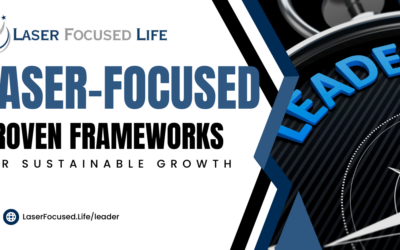Leadership Qualities
Leaders come in all shapes and sizes, but there are certain qualities that they must possess to become an effective leader. From having a strong vision to being able to put others before yourself, these 8 attributes of an effective leader can help individuals hone their leadership skills and reach their full potential.
Attribute 1: Vision
Vision is the cornerstone of becoming an effective leader. Leaders must have a clear vision and communicate this with others in order to inspire followers and guide their team to success. A leader with vision has a keen sense of foresight, being able to anticipate potential challenges and opportunities while applying creative solutions. Great leaders are capable of creating a compelling image of the future that motivates their team toward progress and development.
Visionary leaders also possess strong problem-solving skills that enhance their ability to craft innovative strategies for their organization’s growth. They understand how to take calculated risks, analyze data, and make unbiased decisions under pressure. By understanding the details behind any situation, they can create a unified path forward for achieving organizational goals efficiently and effectively.
Having vision is the key attribute for becoming an effective leader who can guide their team confidently into the future.
Attribute 2: Communication
Top-tier leaders know that effective communication is key to getting their message across and achieving success. Good communication skills are essential for becoming an effective leader, as it helps build trust with team members and creates a clear understanding of expectations. With clear communication comes clarity on purpose and direction, which can help a leader inspire others to reach their goals.
Good communication also involves active listening in order to really understand the perspectives of those around you. Listening allows leaders to pick up on nuances and gain insight into how they can better support their team members while maintaining motivation toward a common goal. Effective leaders understand the importance of feedback, both positive and constructive, as it is important for employees’ development in their roles. Open dialogue also encourages creativity; this helps ensure that new ideas are listened to within an organization or group.
Attribute 3: Confidence
Confidence is a key attribute of an effective leader. It is essential for becoming and staying successful in a leadership role. Confidence can be described as being sure of one’s abilities, having trust in one’s decisions, and believing in their own judgment. Leaders who are confident are able to inspire confidence in their team members and make them feel secure working under them.
The key to developing confidence as a leader is to become well-prepared before making important decisions or taking on difficult tasks. A confident leader takes the time to understand the situation at hand and does not rush into anything without gathering all relevant information first. They also take ownership of their mistakes and focus on how they can learn from them rather than placing blame elsewhere. By doing so, they gain respect from their peers for being honest about where they lack knowledge or experience, which further enhances their confidence as a leader. In addition, they take the time to understand what makes others tick so they can effectively communicate with them. A confident leader listens to their team and takes the time to address their concerns and needs.
Attribute 4: Integrity
Integrity is a key character trait of successful leaders. A leader with integrity is honest in their words, deeds, and decisions. They have the moral courage to do the right thing regardless of any external pressures or difficulties they may face. Additionally, an effective leader demonstrates high standards of ethical behavior and speaks out against unethical practices when necessary.
Integrity also involves being consistent in one’s actions, beliefs, and values over time. An individual with this trait will be reliable and dependable in their dealings with others; they will act responsibly even when no one is watching them. Furthermore, a leader with integrity has nothing to be ashamed of; they are proud of their past decisions and accomplishments because they possess good judgment that allows them to make sound choices that build trust from colleagues and followers alike.
Attribute 5: Empathy
Empathy is a defining characteristic of an effective leader. It involves understanding how someone else feels and responding to their emotions in a compassionate way. An effective leader will be able to recognize the needs, concerns, and feelings of others and connect with them on an emotional level. This ability allows leaders to build strong relationships with employees, customers, or anyone they come into contact with throughout their career.
An empathetic leader will be able to see things from different perspectives and identify solutions that are beneficial for everyone involved. They have the ability to look beyond the surface-level issues and understand why a problem exists in the first place. Empathy also helps leaders show humility towards those they are leading by being open-minded and accepting of constructive feedback from colleagues or team members. Overall, an effective leader is one who has empathy for all parties involved in any situation.
Attribute 6: Decisiveness
Effective leadership requires a balance of attributes that bring together the best of problem-solving and decision-making. As an effective leader, you must have the ability to arrive at decisions in a timely manner and then act upon them decisively. This attribute is essential for successful leaders who need to make quick decisions without hesitation in order for their team or organization to reach its goals.
Decisiveness includes the ability to weigh evidence, consider situations from multiple angles, and accurately assess risk versus reward when necessary. It also involves having good communication skills so that you can effectively explain your reasoning behind any given decision to fellow team members or stakeholders. Furthermore, decisiveness helps move projects along efficiently by removing any roadblocks that could slow down progress or cause confusion amongst team members on how to proceed with tasks.
Attribute 7: Humility
Humility is an essential trait of any effective leader. Leaders who display humility in their words, actions, and values create a strong foundation for success by inspiring others to do the same. Becoming an effective leader requires more than just having technical skills; it requires understanding the importance of listening to and respecting every individual’s ideas and opinions. To demonstrate humility as a leader means being open to constructive criticism with a sense of respect for those providing it. It also involves cultivating an environment where everyone can thrive, regardless of their status or title within the organization. When leaders practice humility in their leadership roles, it can have positive effects on morale and even lead to increased productivity in the workplace. Humility, when practiced by leaders, can help with creating an environment where employees feel valued and respected. This can lead to greater overall employee morale, which can then translate into increased productivity and profitability.
Attribute 8: Passion
If you want to become an effective leader, passion is an attribute that can set you apart from the crowd. Passion is defined as a strong emotion or feeling of enthusiasm towards something, which can be applied to many aspects of leadership. Passionate leaders are driven by their goals and inspire enthusiasm in those they lead. They have clear visions and provide motivating incentives to get results while leaving room for creativity and imagination.
Passionate leaders also recognize the importance of developing relationships with their team members. They understand that without strong relationships between team members, motivation may suffer. Passionate leaders are able to foster these relationships through emotional intelligence, empathy, and understanding others’ perspectives. Through this type of connection with their team members, passionate leaders create an atmosphere where employees feel appreciated and valued for their contributions.
Conclusion: Leadership Characteristics
Leaders play an important role in society, as they can often motivate and inspire individuals to reach their goals. Becoming an effective leader involves many traits and characteristics that are necessary for success. Leadership isn’t about being the loudest voice in the room, it’s about having the strength of character to make wise decisions. In this article, we discussed 8 essential attributes of an effective leader: vision, communication, confidence, integrity, empathy, decisiveness, humility, and passion. Each of these traits is important for becoming a successful leader that can effectively lead their team or organization.





0 Comments